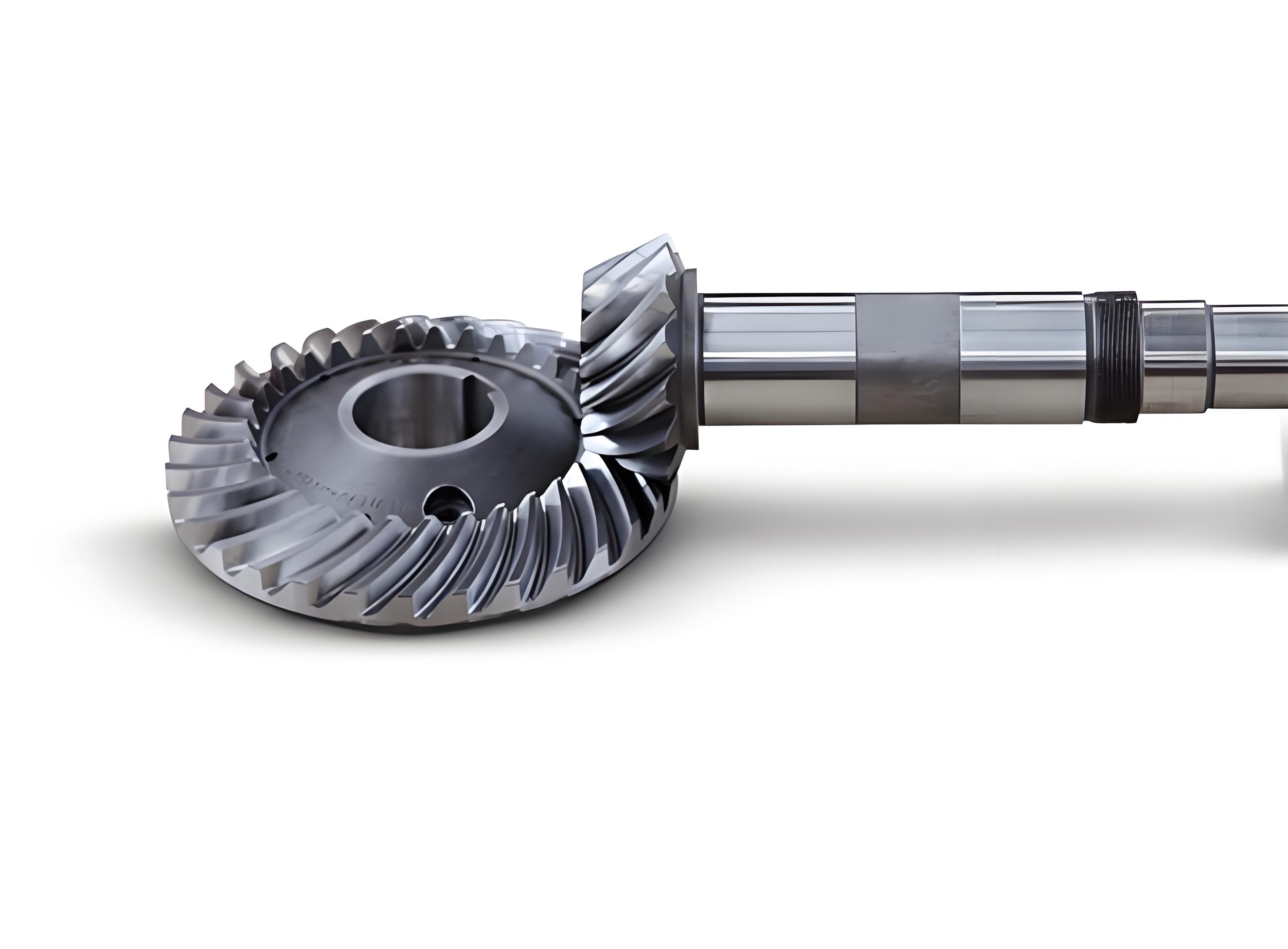
Abstract
Lubrication plays a critical role in extending the lifespan of spiral bevel gear by reducing friction, wear, and heat generation. This review explores innovative lubrication methods and technologies designed to enhance spiral bevel gear performance and durability. These methods include advanced lubricants, solid lubrication, nanotechnology, and intelligent lubrication systems.
Introduction
Spiral bevel gear is essential components in various high-load applications, where effective lubrication is crucial for maintaining performance and reducing wear. Traditional lubrication methods often fall short under extreme conditions, necessitating the development of advanced lubrication techniques. This review highlights the latest innovations in lubrication that aim to improve the operational lifespan of spiral bevel gear.
Advanced Lubricants
- Synthetic Lubricants
- Properties: Higher thermal stability, better viscosity index, and enhanced wear protection compared to conventional mineral oils.
- Applications: Suitable for high-temperature and high-speed applications, such as automotive and aerospace industries.
- Bio-Lubricants
- Properties: Environmentally friendly, biodegradable, and low toxicity.
- Applications: Ideal for industries with stringent environmental regulations, such as marine and food processing.
- High-Performance Additives
- Types: Anti-wear agents, extreme pressure (EP) additives, friction modifiers, and antioxidants.
- Function: Enhance the base oil’s performance by reducing wear, preventing oxidation, and minimizing friction.
- Applications: Used in high-load and high-temperature spiral bevel gear applications to extend gear life.
Solid Lubrication
- Solid Lubricant Coatings
- Materials: Molybdenum disulfide (MoS2), graphite, polytetrafluoroethylene (PTFE).
- Properties: Provide lubrication in extreme conditions where liquid lubricants may fail, such as high vacuum or high temperatures.
- Applications: Aerospace, military, and space applications where conventional lubrication is challenging.
- Composite Coatings
- Structure: Combination of solid lubricants and hard coatings (e.g., DLC, TiN) to provide both wear resistance and lubrication.
- Benefits: Reduce friction and wear, extend maintenance intervals, and improve spiral bevel gear efficiency.
- Applications: High-load and high-wear environments, such as industrial machinery and heavy equipment.
Nanotechnology in Lubrication
- Nanoparticle Additives
- Types: Metal oxides (e.g., TiO2, ZnO), carbon-based materials (e.g., graphene, carbon nanotubes).
- Mechanism: Nanoparticles form a protective layer on spiral bevel gear surface, reducing direct metal-to-metal contact and wear.
- Benefits: Improved load-carrying capacity, reduced friction, and enhanced thermal stability.
- Applications: Automotive, industrial, and aerospace spiral bevel gear systems.
- Nano-Lubricants
- Composition: Base lubricants enhanced with dispersed nanoparticles.
- Properties: Superior thermal conductivity, better load-bearing capabilities, and reduced wear rates.
- Applications: High-performance applications where traditional lubricants are inadequate.
Intelligent Lubrication Systems
- Condition-Based Lubrication
- Technology: Sensors and monitoring systems to assess the condition of the lubricant and gear.
- Function: Adjust lubrication parameters in real-time based on operational conditions.
- Benefits: Optimizes lubrication intervals, reduces lubricant waste, and prevents over-lubrication.
- Applications: Smart manufacturing, automated machinery, and critical industrial processes.
- Automated Lubrication Systems
- Design: Systems that automatically dispense the right amount of lubricant at the right time.
- Control: Integrated with machine control systems for synchronized operation.
- Benefits: Ensures consistent lubrication, reduces maintenance efforts, and extends spiral bevel gear life.
- Applications: Continuous operation environments like manufacturing plants and transportation systems.
Case Studies
- Automotive Gears
- Innovation: Use of synthetic lubricants with high-performance additives.
- Outcome: Improved fuel efficiency, reduced spiral bevel gear wear, and extended service intervals.
- Aerospace Gears
- Innovation: Solid lubricant coatings in high-altitude and space applications.
- Outcome: Enhanced spiral bevel gear performance under extreme conditions and reduced maintenance frequency.
- Industrial Machinery
- Innovation: Nano-lubricants in heavy-duty machinery.
- Outcome: Increased spiral bevel gear life, reduced downtime, and improved overall equipment efficiency.
Conclusion
Innovative lubrication methods are essential for extending the lifespan of spiral bevel gear. Advanced lubricants, solid lubrication, nanotechnology, and intelligent lubrication systems offer significant improvements in reducing friction, wear, and heat generation. These technologies not only enhance spiral bevel gear performance but also contribute to more sustainable and efficient operations across various industries.
References
- Tribology International: Research articles on advanced lubricants and solid lubrication techniques.
- Wear Journal: Studies on the impact of nanotechnology in lubrication.
- Journal of Lubrication Science: Papers on intelligent lubrication systems and their applications.
- Lubrication Engineering: Articles on the development and performance of bio-lubricants and synthetic lubricants.
This review provides a comprehensive overview of the latest advancements in lubrication methods aimed at improving the durability and performance of spiral bevel gear, serving as a valuable resource for engineers, researchers, and industry professionals.
